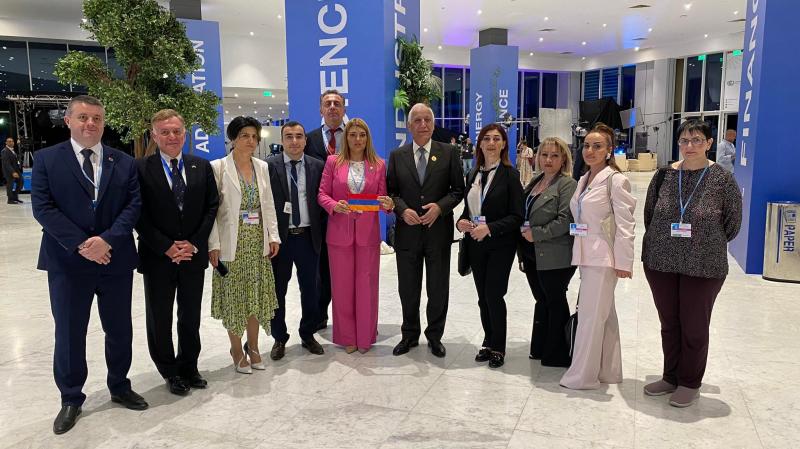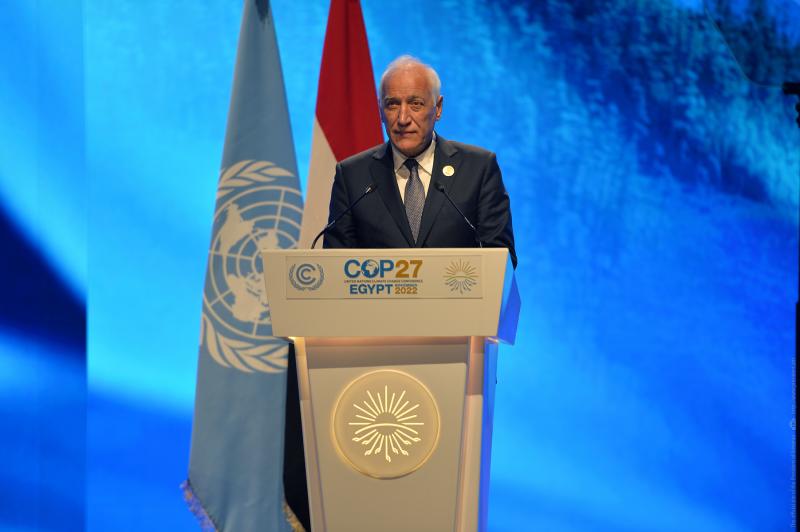On November 7, the President of the Republic Vahagn Khachaturyan delivered a speech at the 27th Conference of Parties to the UN Framework Convention on Climate Change in Sharm El Sheikh.
The President noted that the fight against climate change is an important component of the global agenda, which requires the joint commitment of all.
“Climate change is proceeding even faster than previously estimated. Humanity is not only the witness of this change, but also directly affected by it. Ecosystems are endangered, water resources are running out, floods, storms, forest fires, heat and drought are becoming more frequent," President Khachaturyan said.
Referring to the impact of conflicts on the environment, the president said. "We are all well aware of the destructive power of conflicts on the environment, its resources and productivity.
The effects of war on ecosystems vary and depend on the scope and duration of the conflict, as well as the types of weapons used.
Unfortunately, recently Armenia faced such a challenge. On September 13 of this year, Azerbaijan initiated aggression, targeting the sovereign territory of Armenia. Densely populated cities in eastern and southeastern Armenia, including the city of Jermuk, known as a mountain spa and medical tourism destination, came under heavy shelling. The military operations against the mentioned regions were accompanied by the use of a wide range of weapons, including artillery and combat drones, causing significant damage to the unique environmental complex. The shelling of the Kechut Reservoir could also lead to many human casualties and have disastrous consequences for the environment."
President Vahagn Khachaturyan emphasized that despite the challenges and security issues in Armenia, the climate change agenda continues to occupy a primary place in the government's agenda.
"In particular, climate-resilient and low-carbon development based on a sustainable and long-term climate change adaptation strategy, large-scale afforestation, investments in renewable energy and energy efficiency, the use of innovative and modern climate technologies, the promotion of electric mobility and the development of nuclear power have been identified as a priority. the president said.





